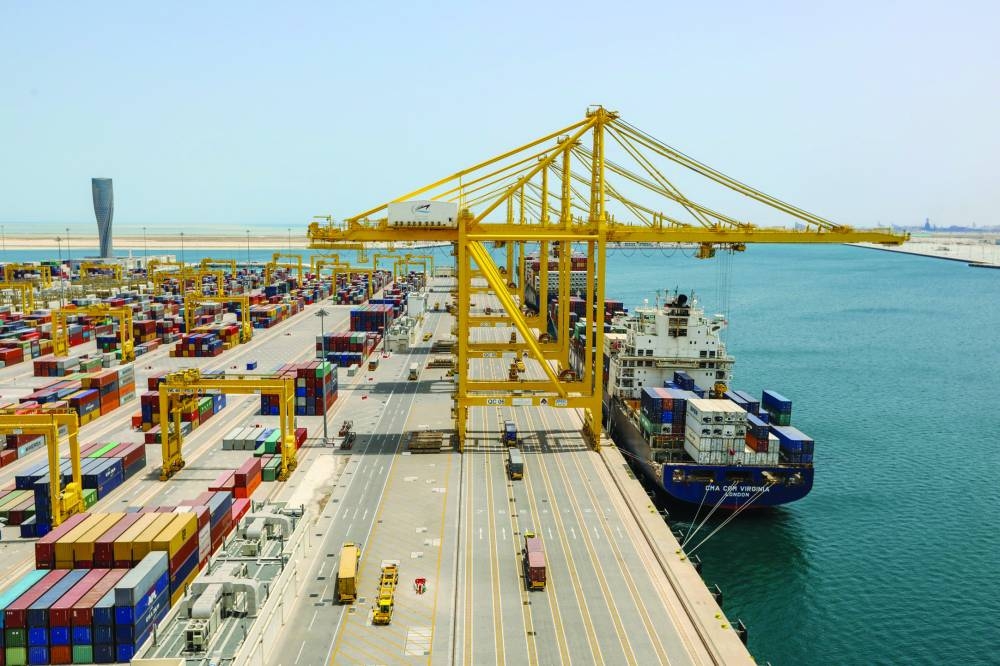His Highness the Amir Sheikh Tamim bin Hamad al-Thani’s strong and decisive leadership served as a beacon of hope and was instrumental in steering the country’s economy at the height of major crises, such as the 2017 economic blockade against Qatar and the Covid-19 pandemic.
In just 72 hours after the blockade was announced on June 5, 2017, His Highness the Amir immediately called on government ministries and agencies, including different private and semi-private organisations to mobilise resources.
To support and promote national products and push for self-reliance and self-sufficiency, Qatar Development Bank (QDB) initiated ‘Buy Local Products’, which encouraged SMEs to expand their local supply in the plastics, iron and steel, aluminium and copper, wood, and general building materials sectors.
The blockade also transformed the mindset of Qatari entrepreneurs running home-based businesses. In October 2017, the ‘Made at Home’ exhibition showcased the determination of home-based business owners to enhance their products and address the needs of the local market, as well as support the development of the economy.
Through the efforts of QDB, Qatar thrived as a favourable environment for new businesses, including micro, small and medium-sized enterprises (MSMEs) and start-ups. Despite the economic blockade, the country remained rife with opportunities that enable entrepreneurs to grow their businesses, such as the availability of retail space, access to funding and advisory services, and support from incubation centres.
QDB also played a significant role in helping identify which supply chain to tap to substitute goods that have been affected by the economic blockade with Qatari products. Another key factor is the government’s support of the private sector, which pushed many procurement projects to be localised. These commitments to patronise local products played a big role in helping the private sector to take this opportunity.
The opening of the Hamad Port just three months after the blockade was also a testament to the resiliency of the Qatari economy under the steadfast and wise leadership of His Highness the Amir. It paved the way for the state to open new routes and widen the trade network of Qatar and its global partners. The opening of the world-class facility at the height of a regional crisis also expedited Qatar’s efforts to meet the objectives of its food security strategy.
At the height of the Covid-19 pandemic, His Highness the Amir ordered the release of a QR75bn financial aid in 2020 to cushion the economy and shield the private sector from the impact of the global health crisis.
Key leaders from the private sector lauded the Amir’s decision.
In response to the release of the stimulus package, Qatar Chamber chairman Sheikh Khalifa bin Jassim al-Thani said: “The private sector is grateful for the efforts made by the esteemed government to reduce the spread of the novel coronavirus. While the precautionary measures had some negative impact on economic activity, they are the best way to protect citizens and residents from the virus.”
In an April 2021 report, Qatar Chamber announced that the level of the country’s private sector exports returned to pre-pandemic levels.
The total value of Qatar’s foreign merchandise trade in January 2021 stood at QR29.1bn, reflecting a 13.7% growth over QR25.6bn in December 2020, the chamber reported, citing figures from the Planning and Statistics Authority (PSA) and the private sector’s exports based on certificates of origin issued by Qatar Chamber.

The opening of the Hamad Port just three months after the blockade was a testament to the resiliency of the Qatari economy under the steadfast and wise leadership of His Highness the Amir Sheikh Tamim bin Hamad al-Thani’s. It paved the way for the state to open new routes and widen the trade network of Qatar and its global partners. The opening of the world-class facility at the height of a regional crisis also expedited Qatar’s efforts to meet the objectives of its food security strategy.

